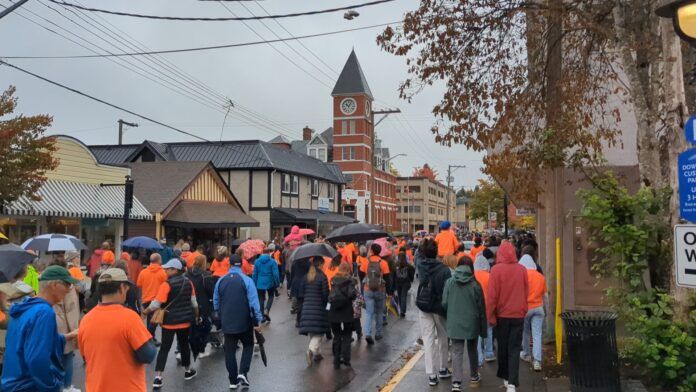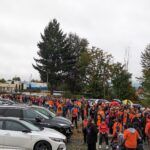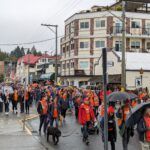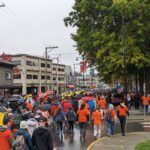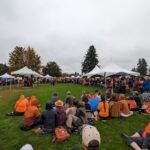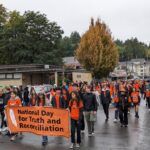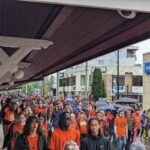Despite the rain, thousands still flocked to downtown Duncan on Monday morning for the third annual Every Child Matters March.
Event organizer for Makola Housing, Audrey George, says she was happy so many braved the chilly weather to show their support.
“I am really grateful for the turnout today,” says George. “I’m really honoured and grateful for the youngest participant to the oldest elder to come here and show their support. We really need all ages, particularly the youth here to make a difference to change our world.”
The day was filled with drumming, dancing, and speeches. In her speech before the people, George says it’s important to remember the day is about more than just wearing an orange shirt.
“It is more than that,” George said to the masses. “You need to educate yourself. You need to make change and get out of the comfort zone. Build the bridges between the networks, build the bridges between the communities. Educate your children and your grandchildren. Break the cycles. That is why we are here today, so that our youth and our children can make a difference and make a better world.”
One of the speakers was residential school survivor, Eddy Charlie. He said it’s important to keep the stories from that dark chapter of history alive.
“We need to keep the talking about what happened to all the people of nations from Nova Scotia to British Columbia,” says Charlie. “We need to keep the stories going because if the last residential school survivor died tomorrow, their story would be lost and it would be as if residential schools did not happen.”
Charlie shared his views of the harms of residential schools on Indigenous peoples.
“I went to Kuper Island and came back a changed person,” said Charlie to the crowd, sharing his personal struggle with alcoholism. “I sobered up 27 years ago and for the first time in my life I saw the kind of destruction that residential schools had on our people.”
The event has grown in attendance in the three years it’s run since the Truth and Reconciliation movement was spurred by the discovery of 215 children in unmarked graves at a residential school in Kamloops. That initial discovery has been followed by more graves found at residential schools across the country, including 160 at the Kuper Island school.
The healing process includes finding a path forwards for Indigenous youth. Katelyn Beale was added to the speakers list as a role model for young people looking for balance between their Indigenous culture and the current state of the western world. Beale’s grandparents attended residential school, and now she has gone on to recently attain a law degree and now works for Tsartlip First Nation, while pursuing a Master’s degree.
“No matter what kinds of barriers we face in our life, anything is possible,” said George in her introduction of Beale. “You have to have that balance in your life where you balance your culture and the Western world of education. Katelyn is a prime example of how this is possible.”
The recurring theme from speakers was that while the idea of reconciliation with Indigenous peoples is federally recognized on Sept. 30, the actual process should be thought of year round.
“I hope that people realize that reconciliation is just a word until you stand up and do something positive that brings change to the community,” said Charlie to those in attendance.
“My goal and the purpose of our walk is to educate, inform, and to make change,” says George. “We need to work on things on an everyday basis rather than just coming out and honouring once a year.”


